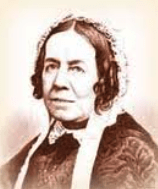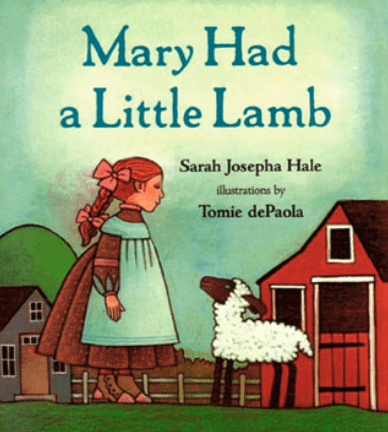Thanksgiving is an interesting holiday. For one thing, it falls on a Thursday. In this way it’s considered more important than, say, President’s Day which falls on a Monday. This is because most people take at least 4 days off for Thanksgiving and only three days off for President’s Day (if they are lucky to get even that). Even though Thanksgiving has its origin as a religious observance, to most people today, it has no more meaning than getting together with family and friends and eating a big meal. When most people think of Thanksgiving, they think of turkey, Pilgrims and Indians, pumpkin pie, cranberry sauce, traveling, big get- togethers, football, parades, and leftover turkey. Of course, there are some holdbacks who want it to be more special than that. These are usually mothers and that’s why they insist that we pause before eating and try to say something nice to one another. (You might even be reading this because you know you will be called by your wife or mother to say something and you are trying to get prepared – good luck with that.) I do love Thanksgiving for all the food and festivities, but I have to be honest and say I also hope for more out of the day. I want Thanksgiving to mean something more. I don’t want the sum of my life and my relationships with my loved ones to be all about eating meals – even big ones. So, what does it mean to have a holiday based on the idea of thankfulness? Have you stopped to consider that it is not possible to be thankful for anything you have not first needed? That’s right. You can’t be thankful for what you can easily supply yourself. Thankfulness requires relationships – because thanking yourself is silly. Thanksgiving really is best appreciated when you first understand the troubles and miseries of this world – and how you have been delivered or spared from so much tragedy. But what about the hardships you have not been spared from? This can actually deepen your appreciation of the blessings still to be had in this life. People who have starved know better than those who never have what it means to have food. People who have feared for their lives know better than those who never have what it means to have security and shelter. People who have lost loved ones have the ability to know better than those who never have how very special it is to just look across a table and smile at those who are still with us. Thanksgiving cannot be passive. We give thanks or we withhold it. It’s a choice, just like love is a choice. We choose to be thankful or we choose to regret that we didn’t dodge pain. It’s interesting that over the years a common theme around this holiday season that starts with Thanksgiving and ends with the New Year, is the deep sadness many feel because of the loss of loved ones. I personally understand. My dad passed away two years ago just before Thanksgiving, so I get having the temptation to want to just check out; to take a pass on rejoicing and celebrating. However, I don’t buy the excuse. Sure I will miss my dad this year and plan to miss him the rest of my life, but I will still choose to give thanks – first, that he was my dad. Then I will give thanks that I still have people who love me and who I love right around me. Here’s my point: Giving thanks without feeling pain is actually very shallow. There is something richer than that for all of us to experience.
Abraham Lincoln was the first president to proclaim a national day of Thanksgiving. He did it in 1863, in the middle of the Civil War. The last Thursday in November was to be set aside to give God thanks. Incidentally, in March of the same year, President Lincoln also called for a day of fasting to be observed toward the end of April. I mention this because there is a tie-in between fasting and feasting. On our darkest days, we lose our appetites and prayer becomes automatic. Lincoln understood this. He also understood that it is important in the midst of pain, in order to not fall into despair, to stop and count our blessings as well. I don’t care what you think about U.S. society today including our challenging economy and intense political debates, the mood of the country doesn’t even come close to the level of pain and suffering this nation experienced as a whole back in 1863 – and yet Americans back then set aside a day to be thankful to God. It often seems that people who live in the most difficult circumstances have a greater capacity to be grateful compared with those who live in relative ease. Certainly, for many the tangible things are the most appreciated – which is the essential nature of a secular society. Generally, the longer we live, however, the more opportunities we have to discover that the intangible blessings are far most important, valuable, and enduring when compared to things. I wish it were true that increasing age automatically meant increasing maturity, but you and I both know this is not the case. But hang in there and be patient if you, like me, hope for a deeper meaning to come back into Thanksgiving. Which leads me to my finally story. Thanksgiving indeed became a national holiday because of Lincoln’s proclamation, but many believe that he would likely not have authorized it had it not been for Sarah Josepha Hale, a 74-year-old magazine editor, who wrote the president a letter on September 28, 1863, urging him to have the “day of our annual Thanksgiving made a National and fixed Union Festival.”

But this wasn’t her first letter. She had been writing letters to presidents and other officials as well as editorials in her woman’s magazine, Godey’s Lady’s Book, over the prior 30+ years. Incidentally, her most lasting contribution to literature is the children’s poem, “Mary Had a Little Lamb.” (As a trivia buff, I just think this is cool). Sarah Hale was an amazing woman who raised five children as a young widow and became one of the most influential women in American literature both in her day and even now. So for all you mothers out there who want to have Thanksgiving be that special time in your family’s life, I leave you with Hale’s final words to her readers in the December 1877 issue: “And now, having reached my ninetieth year, I must bid farewell to my countrywomen, with the hope that this work of half a century may be blessed to the furtherance of their happiness and usefulness in their Divinely-appointed sphere. New avenues for higher culture and for good
works are opening before them, which fifty years ago were unknown. That they may improve these opportunities, and be faithful to their higher vocation, is my heartfelt prayer.”

For more information on Thanksgiving go to History.com

